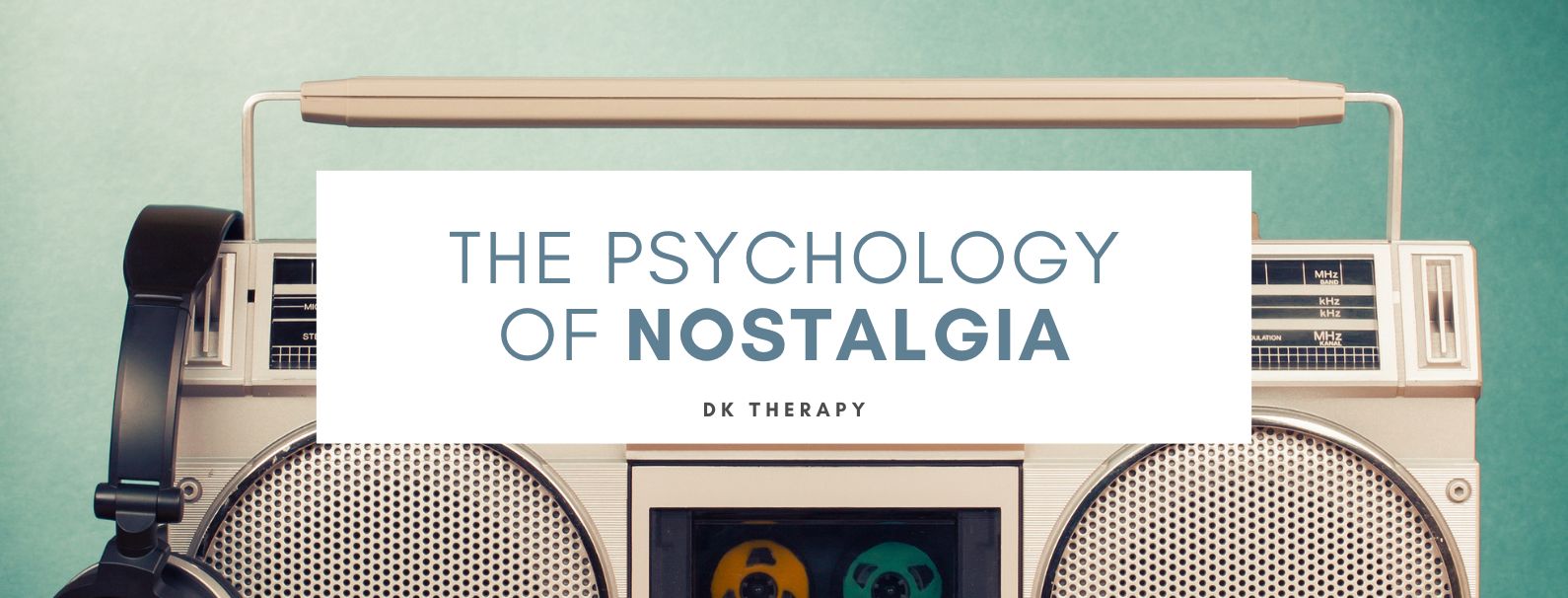
Nostalgia is a strong emotional experience that brings distant memories into sharp focus. Hearing an old song, smelling a familiar scent, or seeing family photographs can send us back to meaningful moments in our lives.
But what exactly is nostalgia, and why does it have such an effect on us? Let’s explore the basics of nostalgia, including its definition, the science behind it, and the feelings it inspires.
What Is Nostalgia?
 The word “nostalgia” comes from nostos and algos in Greek, which mean “return home” and “pain,” respectively. While it was initially used to describe homesickness, the definition evolved to include a broader feeling. This added sense of nostalgia focuses on sentimental affection for the past and usually comes from personal experiences or something that occurred within an entire society.
The word “nostalgia” comes from nostos and algos in Greek, which mean “return home” and “pain,” respectively. While it was initially used to describe homesickness, the definition evolved to include a broader feeling. This added sense of nostalgia focuses on sentimental affection for the past and usually comes from personal experiences or something that occurred within an entire society.
Unlike simply recalling old times, nostalgia is unique in that it usually includes a mix of emotions. These vivid recollections of the past are often triggered by sensory cues like songs, locations, or even certain foods.
The Neuroscience of Nostalgia
Research in neuroscience has shown that nostalgia activates several areas of the brain, especially those that relate to memory and emotion. The hippocampus plays a major role in recalling nostalgic experiences as the brain’s key memory center. The amygdala helps power these memories with strong feelings, as this region helps process emotion.
Nostalgia also activates the brain’s reward system which leads to the release of neurotransmitters like dopamine and oxytocin. These chemicals help induce feelings of pleasure, bonding, and well-being, which may explain why nostalgic experiences can be so comforting.
Why Do We Experience Nostalgia?
On the surface, nostalgia seems like just a common experience we have when looking back at the past. However, science suggests that nostalgia serves a few important psychological functions, like:
Boosting Mood and Reducing Stress
Nostalgic memories often provide a sense of comfort and security, which may help reduce stress during difficult times. Studies have found that people who reflect positively on the past report feeling happier and more optimistic about the future.
Enhancing Social Connection
Nostalgia often centers around memories of relationships and shared experiences. By recalling positive interactions with friends and family members, nostalgia can strengthen our sense of belonging and remind us of our strong social bonds with the people we love.
Giving Life a Sense of Meaning
Nostalgic memories often bring about snapshots of meaningful moments in life. Significant achievements, events, or relationships help form the lives people go on to lead. During times of uncertainty or loss, nostalgia can become a sort of psychological anchor.
Inspiring Personal Growth
Reflecting on the past can encourage personal growth. Nostalgia allows us to recognize how far we’ve come so that we have the motivation to keep moving forward.
The Negative Potential of Nostalgia
Though nostalgia is generally a positive experience, it can have downsides. Preoccupation with the past can result in dissatisfaction with current circumstances or overall sadness over time lost. Some people may use nostalgia as a form of escapism, dwelling on the past constantly to avoid present challenges.
That said, research suggests that a balanced sense of nostalgia, appreciating the past while staying engaged in the present, can be good for emotional well-being.
Nostalgia is a complex emotional and neurological process that serves essential psychological functions. By bringing about feelings of joy, connection, and meaning, nostalgia helps us bring ourselves comfort as we push through life’s ups and downs. So, next time you hear an old song or come across a childhood keepsake, embrace the emotion it induces. It may be doing more for your mental well-being than you realize.
If you’re struggling and you’d like to explore therapy options, please reach out to DK Therapy at your convenience and schedule an appointment with our office.




